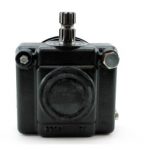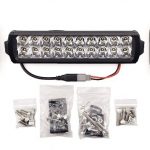 A knocking sound when your engine is running can indicate a variety of malfunctions, so you’ll need to take a look inside your engine. Some of the fixes are easy, some of them aren’t, but all of them are doable on your own. So what causes knocking sounds in your small lawn mower or push mower engine, and what are some easy fixes?
A knocking sound when your engine is running can indicate a variety of malfunctions, so you’ll need to take a look inside your engine. Some of the fixes are easy, some of them aren’t, but all of them are doable on your own. So what causes knocking sounds in your small lawn mower or push mower engine, and what are some easy fixes?
What is Engine Knock?
Engine knock is also known as “detonation,” the exploding of fuel molecules instead of the combustion. Where combustion causes burn, detonation is just that, small explosions caused by the fuel molecules that create small shock waves, causing that knocking sound.
Knock Caused by Excess Carbon in Combustion Chamber
The main cause of an engine knock comes from the build-up of carbon in the combustion chamber. Carbon is the natural by-product of burning gasoline, and the average small engine will get a good 100 hours or so of operation before carbon starts to build to a dangerous level. An engine knock is usually the indicator of excess carbon, but it can also be signaled by overheating and high oil consumption.
Removing the carbon build-up is a lengthy, somewhat complex process that may be best left to an expert. If you do decide to go it on your own, check your owners’ manual for recommendations on steps to take and solvents to use. Briggs and Stratton offers a basic guide here.
Knock Caused by Loose Flywheel
A flywheel stores momentum caused by your engine to keep the crankshaft turning consistently across the cycles of the cylinders. As the flywheel turns, magnets are used to initiate ignition. A loose flywheel may throw the timing of the ignition off, causing detonation or pre-ignition. Luckily, this can be a simple fix – pulling off the engine shroud and checking for looseness is a 5-minute task requiring no special tools. However, if you determine that the flywheel need replacing and not just tightening, that will call for professional maintenance.
Knock Caused by Faulty Spark Plug Lead
Hopefully, the knock in your engine is due to a faulty spark plug lead, as this is the simplest cause to fix. A faulty lead may delay the spark, which will throw ignition off in the cycle of the engine, causing detonation. All you need to do to see if this is the problem is to check the lead with a spark tester, then check the engine. Your owners’ manual should provide you any specifics for your particular small engine.
By following these simple steps to diagnose the knock from your engine, you can determine if it’s something you feel comfortable taking a crack at or if it’s something you would rather take in to a professional right away. Whatever you choose, you need to take care of it as soon as possible, as prolonged knocking can interrupt your engine cycles or even damage components, such as cylinders and cylinder walls.






